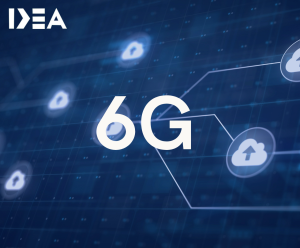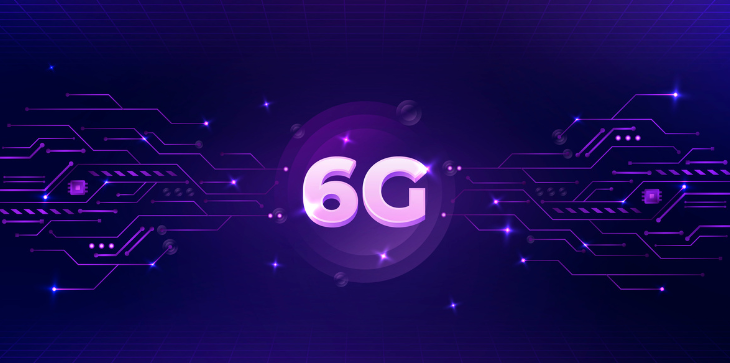The evolution of wireless technology has significantly transformed the way we communicate, work, and interact with the digital world. As 5G networks continue to roll out globally, discussions about 6G and 5G-Advanced have already begun, promising even more revolutionary advancements. While 5G-Advanced is an enhancement of the existing 5G infrastructure, 6G represents the next major generational leap in wireless technology. This article explores the differences between 6G and 5G-Advanced, their key features, potential applications, and how they will shape the future of connectivity.
Understanding 5G-Advanced
5G-Advanced, also known as 5.5G, is an evolution of the current 5G technology. It builds upon the foundations of 5G but introduces significant improvements in network efficiency, capacity, and latency.
Key Features of 5G-Advanced:
- Higher Data Speeds
5G-Advanced is expected to provide speeds up to 10 Gbps, enhancing user experience for applications such as streaming, gaming, and virtual reality. -
Improved Latency
The latency in 5G-Advanced could drop below 5 milliseconds, making real-time applications like remote surgery and autonomous driving more reliable. - Enhanced Network Efficiency
Through the use of AI-driven network optimization and improved spectrum utilization, 5G-Advanced will deliver more stable and efficient connectivity. - Better Energy Efficiency
Power consumption per bit will be reduced, ensuring that networks become more sustainable and cost-effective. - Expanded IoT Capabilities
With better connectivity for massive IoT deployments, industries such as smart cities, healthcare, and logistics will benefit from improved machine-to-machine communication.
5G-Advanced is expected to bridge the gap between current 5G capabilities and the futuristic promises of 6G, enabling more advanced applications while leveraging existing 5G infrastructure.
What is 6G?
6G is the sixth generation of wireless technology, projected to be commercially available by 2030. Unlike 5G-Advanced, which refines current technologies, Its aims to introduce an entirely new level of connectivity, integrating artificial intelligence (AI), extended reality (XR), and quantum communications.

Key Features of 6G:
- Terahertz (THz) Spectrum – 6G is expected to utilize terahertz frequencies, allowing ultra-fast data rates exceeding 100 Gbps.
- Ultra-Low Latency – The latency in 6G could be reduced to 1 millisecond or even less, enabling instantaneous communication.
- AI-Native Networks – 6G will incorporate AI at its core, optimizing network performance, predicting failures, and dynamically allocating resources in real time.
- Holographic Communications – aims to support immersive experiences such as holographic calls and advanced augmented reality (AR) applications.
- Space-Aerial-Terrestrial Integration – Unlike previous generations,will integrate satellite, aerial, and terrestrial networks, providing global coverage and uninterrupted connectivity.
- Quantum and Secure Communications – will enhance security through quantum cryptography, ensuring highly secure data transmissions.
Potential Applications of 6G and 5G-Advanced
- Smart Cities and Infrastructure – 5G-Advanced will enable better traffic management and automation, while 6G will take it further with AI-driven infrastructure and real-time urban planning.
- Healthcare – Remote surgeries and AI-driven diagnostics will be more refined in 5G-Advanced, but 6G will introduce real-time holographic patient monitoring and advanced telemedicine.
- Extended Reality (XR) – While 5G-Advanced will support AR and VR advancements, 6G will make fully immersive metaverse experiences a reality.
- Autonomous Systems – 6G will support advanced autonomous systems for self-driving cars, drones, and robotics with near-instantaneous communication.
- Global Connectivity – Unlike 5G-Advanced, which relies mainly on terrestrial networks, 6G will integrate satellite networks, providing seamless connectivity worldwide.
Challenges in Implementing 6G and 5G-Advanced
Despite their promises, both technologies face significant challenges:
- Infrastructure Costs – Upgrading from 5G to 5G-Advanced and eventually to 6G requires massive investments in infrastructure and spectrum allocation.
- Energy Consumption – While 5G-Advanced improves energy efficiency, 6G’s terahertz communications may require new breakthroughs to manage power consumption.
- Security Concerns – With greater connectivity comes higher cybersecurity risks, requiring advanced encryption and quantum-secure technologies.
- Regulatory and Standardization Issues – Establishing global standards will be a complex process, requiring collaboration between governments, industries, and regulatory bodies.
The transition from 5G-Advanced to 6G will be a transformative journey in wireless communication. While 5G-Advanced refines and optimizes existing 5G capabilities, and extended reality. Businesses and governments must start preparing for this evolution by investing in research, infrastructure, and security measures. As we move towards 2030, both 5G-Advanced and 6G will play crucial roles in shaping the future of connectivity, driving innovation across multiple industries, and bringing us closer to a truly connected world





